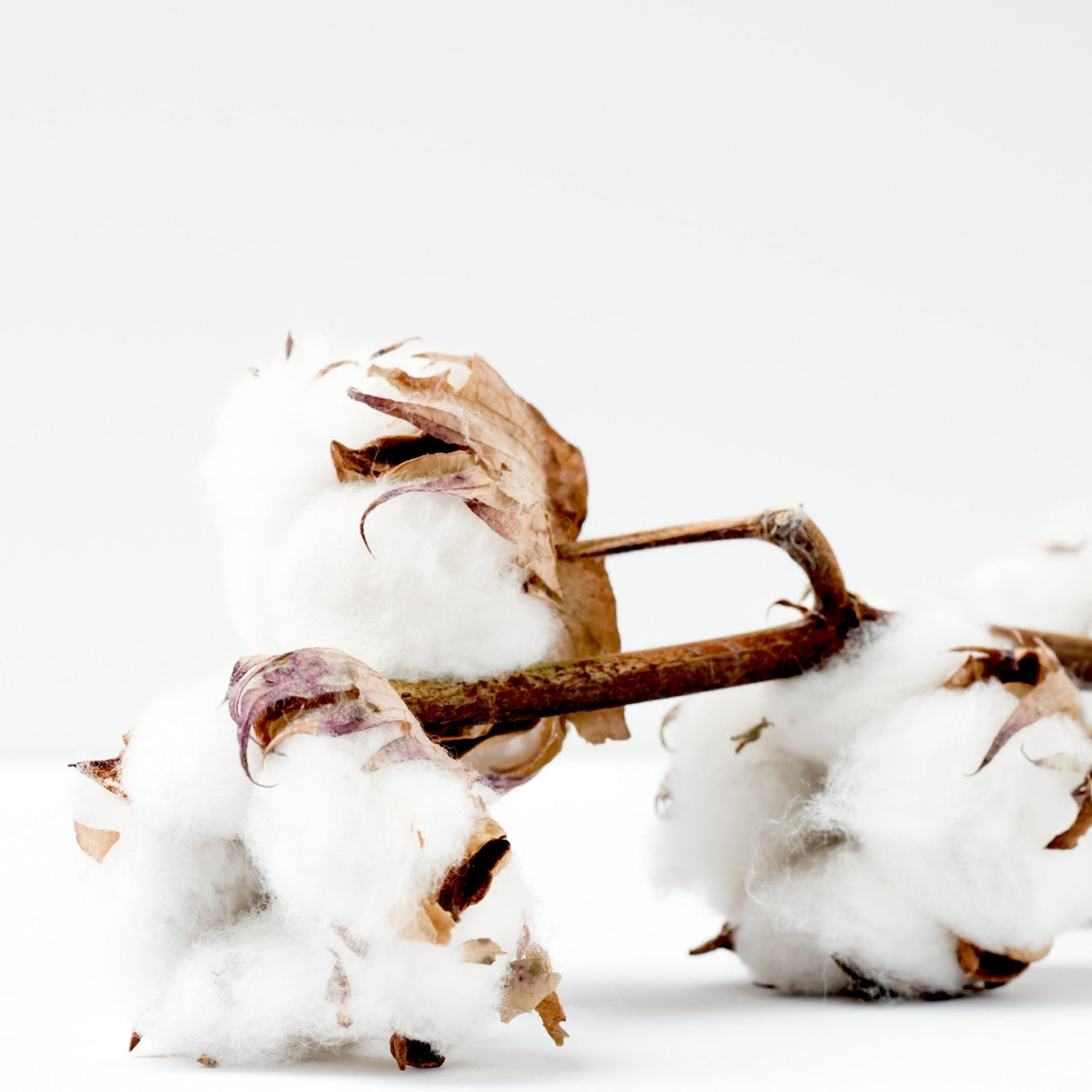On the other hand, the work environment within the conventional cotton industry is extremely harmful to workers for two reasons:

There's a whole lot of chat out there about 'Organic Cotton' but is there really a difference between Conventional Cotton & Organic Cotton? Oh YOU BETCHA there is! And we're here to help shed some light....
Being the most commonly used fabric on earth, Cotton accounts for over half of the world’s fibre needs. From Curtains & upholstery to clothing & Underwear through to Rugs, Socks Hats & everything in between. In fact, if you take a look at what you have on now I bet you are wearing something made of cotton! But not all cotton is made the same....
Laying it down, Organic Cotton is planted, produced and manufactured Organically with zero use of pesticides, fertilisers or GMO seeds to make the plants grow faster. It is also produced in toxic-free dirt. Conventional Cotton on the other hand, is produced WITH these chemicals & fertilisers which means these toxins are passed on to the final product when you purchase or wear something made from conventional cotton.
To explain a little more in detail, here are 5 simple facts discussing the differences between Conventional Cotton & Organic Cotton:
1. Organic Cotton uses MUCH less water to produce.
A T-Shirt made from conventional cotton uses 7900 litres of water.
A t-shirt made from organic cotton uses just 700 litres of water.
This jaw-dropping figure from the Textile Exchange isn’t the only impact of Conventional cotton vs organic cotton on water usage though...
When it comes to watering cotton cops, there are two main options to water cotton plants: by rainfall or irrigation.
According to Textile Exchange, 80% of organic cotton is watered using rainfall. Using rainfall means precious water sources don’t need to be diverted to cotton farming. On the other hand, the extensive irrigation used to grow most Conventional cotton depletes groundwater and creates harmful runoff due to the next item on this list... (Which could be your carrots or Potatoes!)
2. Organic Cotton is Chemical Free
Due to the size of the crops and amount produced, Conventional cotton uses more than 25 percent of the pesticides used in all farming around the world. Pesticides & heavy Fertilisers wreak havoc on the environment by entering the water through runoff, are extremely harmful for humans that come into contact with them (mainly the farmers who are working & breathing these chemicals in all day long) as well as their families who live off the surrounding cotton farm land.
Instead of Chemicals, Organic cotton farmers use native insects that eat the smaller bugs threatening to destroy organic cotton, and the region remains biodiverse with a balance of insect life. Winning!

3. Organic Cotton Produces less CO2
Growing Organic cotton emits around 46% less CO2 than Conventional cotton. This massive difference has important effects on the environment, as CO2 accounts for up to a 1/4 of all greenhouse gases destroying the earth’s ozone layer.
Organic cotton is able to reduce carbon emissions because organic farming requires crop rotation techniques that naturally sequester carbon and keep it from entering the atmosphere. These organic farming techniques mean that organic cotton requires around 62% less energy overall to grow than Conventional cotton.
4. Organic Cotton is not treated with Chemicals
After it’s grown, Conventional cotton is treated with harmful chemicals that can wreak havoc on wearers—from rashes and itchiness, to known carcinogens like formaldehyde that have been linked to cancer. Post production Conventional Cotton Additives could be:
- Heavy metals
- Ammonia
- Formaldehyde
- Petroleum scour
- Chlorine and phthalates (endocrine disrupters which can cause cancerous tumors, fertility issues birth defects, and more)
Alternatively, Organic cotton is hypoallergenic and feels oh-so-soft on your skin...
5. Organic Cotton is handpicked, not machine processed.
This means that not only is it much safer for farmers but the end product is MUCH softer, stronger and more easily woven into it's final fabric. Handpicking Cotton allows for better protection of the cotton fibres which means there is less wastage from an Organic Cotton yield.
- Regular cotton is picked with machinery and treated with toxic chemicals that can harm workers greatly (think occupational pesticide exposure and all the nasty side effects that come with it).
- The conventional cotton industry has been linked to a heartbreaking trend of suicide amongst farmers. The tough competition and decreasing prices in the cotton industry are driving cotton workers to labor for long hours and still not achieve good profit. In India alone, more than 270,000 cotton farmers have committed suicide since 1995.
The difficulties cotton farmers face around the world is a startling reminder that the clothes that we buy are grown and made by real humans, just like us. Wouldn’t you, when you have a choice, prefer to purchase & support products made organically, without harming the environment or the humans producing them?
Now that you know the difference between organic and Conventional cotton, it's pretty hard to un-know. Choosing Organic (much like Organic food produce) often is a little more expensive but when you weigh up the facts like we have just listed above, it's pretty hard to move past... don't you think?
If you know of any other great brands that you wear & love that work with Organic Cotton, we would love to hear! Please leave a note in the comments below x







